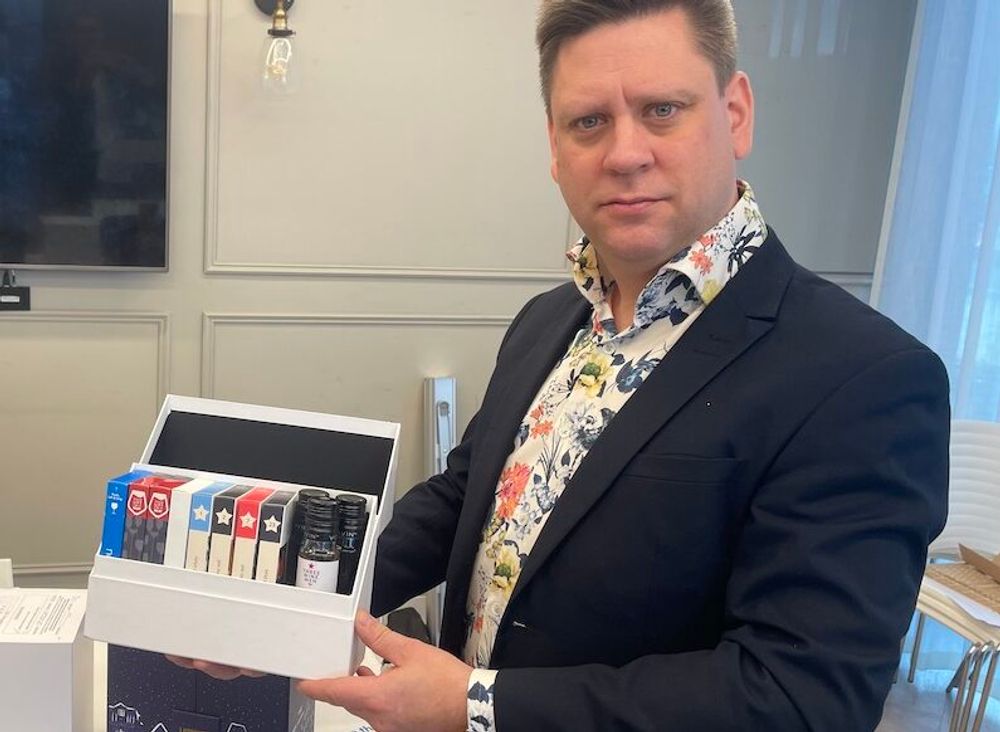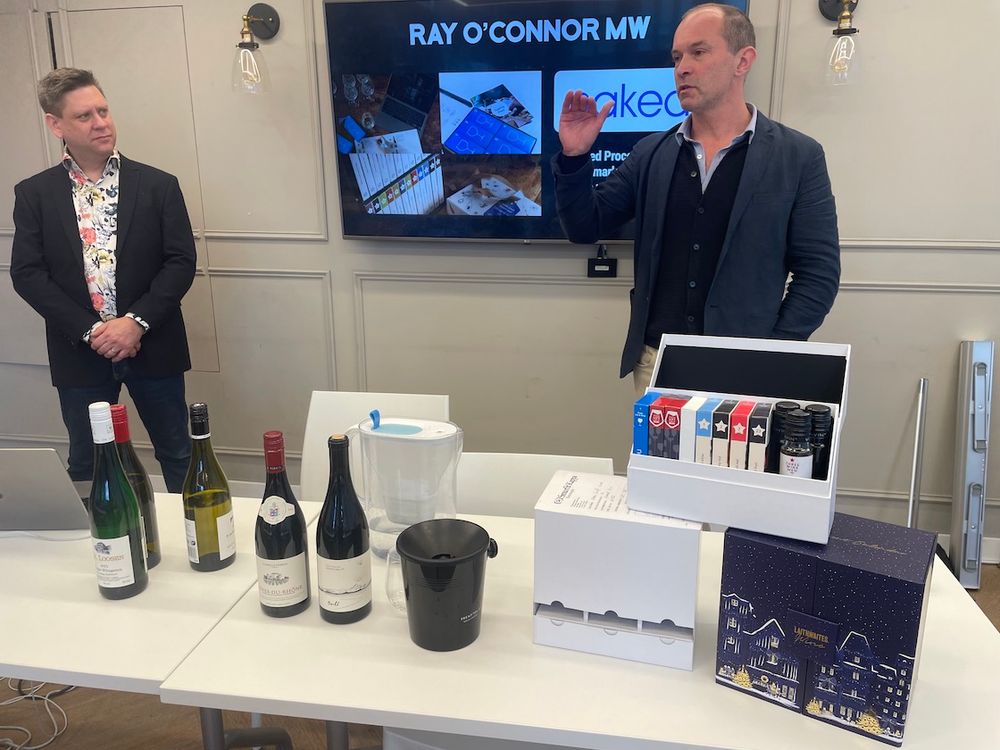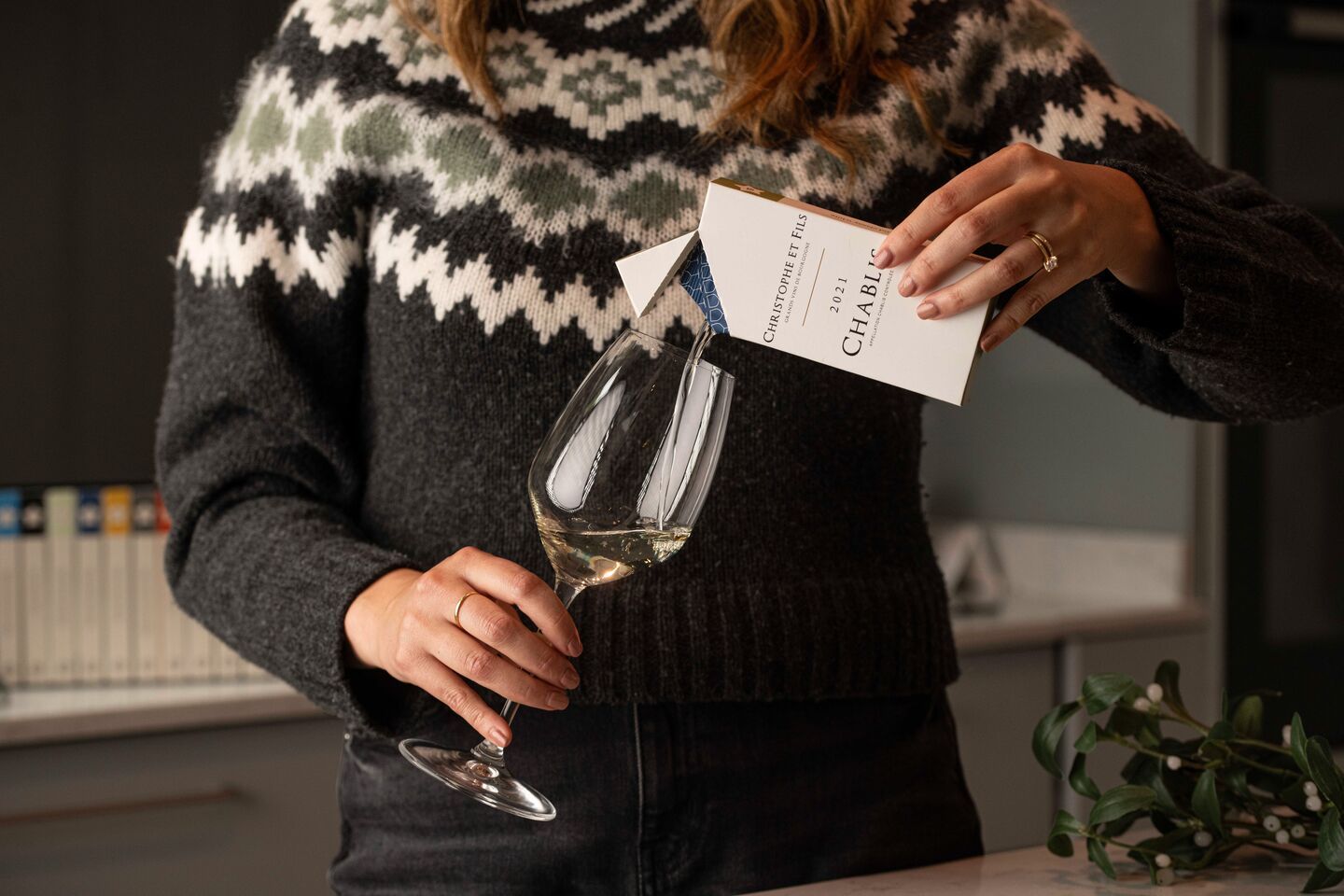“The one key factor is that the firm’s ecoSIP range mimics the oxygen transfer rate of natural cork to get that sweet spot for perfect wine ageing,” writes Smart.

Laithwaites, Wine Society and Naked Wines are all clients of ecoSIP pouches. Alex Taylor, founding director of ecoSIP
The traditional cork and bottle have been around for several millennia.
Rivals, such as screw caps, have established a foothold but none has ever delivered a knock-out blow. One reason is that the natural cork closure can, under the right conditions, offer exactly the right amount of air flow to allow the finest wines to age perfectly through gradual oxidation. (So long as there’s no TCA present, of course). That’s not the case with alternatives. A can is too hermetically sealed, for example, while many plastic tops will let in far too much oxygen.
That may all be about to change. The Online Tasting Company has launched a high-tech rival called ecoSIP, which boasts all the advantages of the traditional cork and bottle but has a lot less environmental impact and a lot less cost. Importantly, its 100 ml pouches are also far better suited to serving small portions of wine, thereby permitting drinkers to try new wines rather than to simply play it safe.

Ray O’Connor MW, wine director at Naked Wines (r), is already a convert to ecoSIP – presenting to wine buyers at the Institute of Masters of Wine, November 7, 2023
To test the new range, we’ve been invited to a blind-tasting challenge pitting the traditional glass bottle against the new, small, individual wine pouches. The venue is the Institute of Masters of Wine’s swish head office on London’s south bank near the US Embassy. This contest, if you like, is the Judgement of Battersea.
For several years now, there’s been a bit of opposition to the 750 ml glass bottle, particularly those that have been getting heavier and heavier as ill-advised wine producers want their products to make a statement. The super-muscled bottle is now under sustained criticism with several distinguished wine writers leading the charge for smaller, lighter bottles.
There is no shortage of alternatives, of course. Cans, PET bottles, Tetrapaks, wine boxes, screw caps etc. All have gained some popularity but none have quite met the acid test: would you entrust a really top-flight wine to them?Screw caps, for example, differ and show a good deal of variability in how much oxygen they do or do not allow in.
Now the Online Tasting Company reckons it can confidently say its small pouches can go toe to toe with a bottle with a natural cork closure. The company, based in Leighton Buzzard, had just opened its doors when COVID-19 hit. It quickly realised that it needed to get customers sampling wine even though they were trapped at home. But the technical obstacles were formidable.
Alex Taylor, founding director, explains that after several years of painstaking trial-and-error, they developed small 100 ml aluminium pouches; these, he claims, will keep wines ‘at their best’ for at least six months without refrigeration. The science is highly complex – the company’s pouches have no fewer than four layers, the thickest one being the aluminium foil. But the one key factor is that the firm’s ecoSIP range mimics the oxygen transfer rate of natural cork to get that sweet spot for perfect wine ageing. The wine ages at the same rate as a bottle with a DIAM Origine cork – there is no stopper, you simply open the foil with scissors.
And so to the blind-tasting…

Can they taste the difference? The Judgement of Battersea puts ecoSIP to the test
Invited as a jury are some 20 buyers from independent wine distributors, supermarkets and others who need to be won over. There is also Ray O’Connor MW, wine director at Naked Wines, who is already a convert.
We are doing straight comparisons – the wines aged at room temperature in the pouches for several months are vying with freshly opened bottles. Taylor says that he picked the wines most likely to ‘go off’ quickly. These include old wines, delicate wines, wines with sugar and low alcohol, and even no alcohol at all.
First up are the whites, which apparently pose a tougher challenge than the more robust reds. The line-up for round one is a Tinpot Hut Marlborough Sauvignon Blanc 2022, Dr Loosen Riesling Kabinett 2021 and Shaw + Smith Chardonnay 2021.
We the jurors swirl, sniff and taste, then concede we can’t tell much, if any, difference. Maybe the mouthfeel is a bit different, with the pouched wine having a slightly thinner texture, but it’s hardly a night and day thing.
For round two, the reds appear, including a Twill Willamette Pinot Noir 2018, Nature Côtes-du-Rhône 2020 and a Finca Manzanos Rioja Gran Rerserva 2001. Once again, there is no tangible difference. We conclude with a Noughty Blanc with an ABV of just 0.5%. Again the same result – occasional small differences, but us tasters pretty much agree that it was impossible to tell which was the ecoSIP pouch and which the bottle.
Who will want to use pouches for wine?

ecoSIP founder Alex Taylor: “Providing new ways to enjoy wine, especially for the lighter drinker.”
So, as far as this comparative tasting goes, the Judgement can be rated a success. Still, this begs the question: who is going to want to use 100 ml aluminium pouches?
Here things get interesting. For it’s evident that the transition goes very much with the grain of three current trends:
- environmental awareness
- lower drinks consumption
- premiumisation.
First, eco-sustainability. The company explains so little aluminium goes into each pack, that the like-for-like CO2 footprint of the pouches knocks the rivals such as glass and cans out of the park. In fact, it’s claimed, that a six-pack of pouches can be packaged and mailed out to customers with emissions of about 200g of CO2 gases, a fifth of the carbon footprint on some single glass bottles.
Then there is the trend for a ‘less-but-better’ approach, now pronounced among many drinkers. ecoSIP promises to make it possible to serve smallish quantities of great wines without wastage. That makes trying out a pricey wine far less daunting than when a full 750 ml bottle is the only option. Drinkers can afford to savour more expensive wines, spouses and dates can sup different wines without friction, mid-week quaffers don’t have to drain an entire bottle.
Taylor comments: “Our vision is to let people experience the diversity of wine. We are talking about reaching hundreds of thousands of customers, providing new ways to enjoy wine, especially for the lighter drinker.”
Customers of the Online Tasting Company have a lot of flexibility. They can choose between a subscription for tasting packs or full bottles. They can also choose the frequency, either a pack every one, two or three months. Or they can simply order on demand.
Other companies, such as Laithwaites and The Wine Society, are now clients. And Naked Wines is already capitalising on the small portion potential with its first Christmas Advent Calendar. This comprises 24 interesting wines, each in the 100ml tasting packs for £89.99.
Coravin, which you might assume is a competitor, has come on board too. The Online Tasting Company shares its advanced bottling facilities with Coravin to bottle small portion wines in 100 ml glass bottles.






























